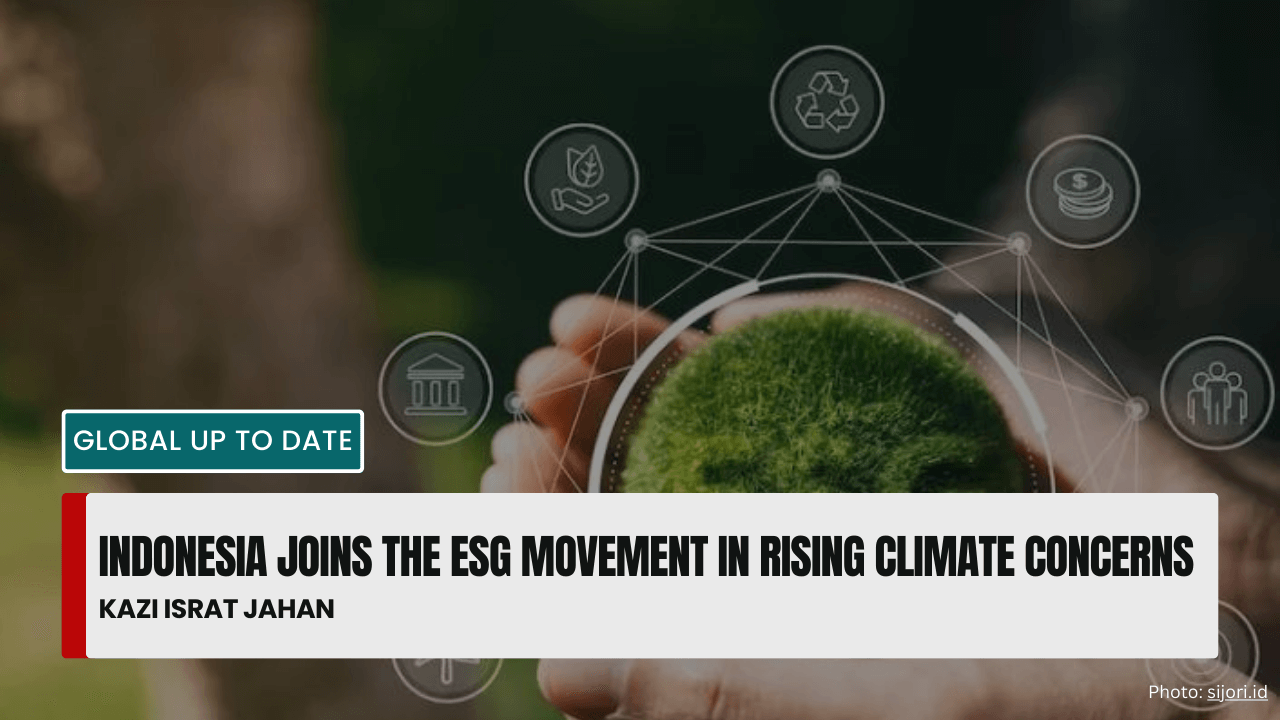From Awareness to Action: Indonesia Joins the ESG Movement in Rising Climate Concerns
Kazi Israt Jahan | 10 August 2023
Worldwide growing climate concern has been driving industries worldwide to act on reducing climate impacts through concerned financial institutions. Institutions have been adopting Environmental and Social Governance (ESG) Policies on voluntary initiative in the current climate movement. National and International ESG Policies are evolving fast around the world and turning into mandatory from voluntary action.
Indonesia has recently joined the club by making ESG disclosure mandatory through the Financial Services Authority (OJK) on sustainable finance on July 31, 2023. It's a great start in making a shift towards greener investment projects. According to Indonesia's Sustainable Finance Roadmap launched by OJK in conjunction with the Ministry of Environment and Forestry in 2015, the largest eight banks of Indonesia, representing over 50 percent of the national banking capital assets, are required to integrate ESG criteria into their risk management practices.
In several countries, mandatory Environmental, Social, and Governance (ESG) reporting is standard practice, despite having significant variation between industries and regions. At present, 29 countries and territories maintain some degree of mandatory ESG disclosure regulation.
Initially, the term Environmental, social, and governance (ESG) was popularized by "Who Cares Wins," a report first published in 2004 by a group of 18 banks and investment firms that was organized by the United Nations. It is a framework used as a tool to evaluate an organization's operations and performance on a range of ethical and environmentally friendly concerns. The goal of an ESG program is to ensure accountability and the implementation of systems and processes to manage a company's impact, such as its carbon footprint and how it treats employees, suppliers, and other stakeholders.
With this mandatory disclosure of ESG reporting, companies are expected or required to comply with national ESG reporting standards or to provide detailed, considered reasons for why they haven't. They are held accountable for any injustice to the workers or the environment by the financial institutions and evaluated based on that for getting finance or investment. Investors use ESG investing to evaluate companies based on their corporate policies and encourage them to act responsibly.
Worldwide, growing numbers of responsible consumers who are concerned about the carbon footprints of the companies from which they consume products or services are compelling the companies to perform as per their expectations. People are more and more looking for ways to recycle, reduce waste, and make greener product choices to reward companies that act responsibly towards the environment.
Individual and institutional investors that take ESG issues into account want to utilize their funds to support businesses that share their own beliefs about social responsibility and environmental sustainability.
Out of the numbered countries that made ESG disclosure mandatory, Indonesia still has a long way to go. Indonesia's banks are yet to be ready to fully take account of ESG in their internal procedures and management systems. As the saying goes, better late than never, we can expect Indonesia to be able to fully implement all the strategies in the near future.
Kazi Israt Jahan, Research Intern at CGS
